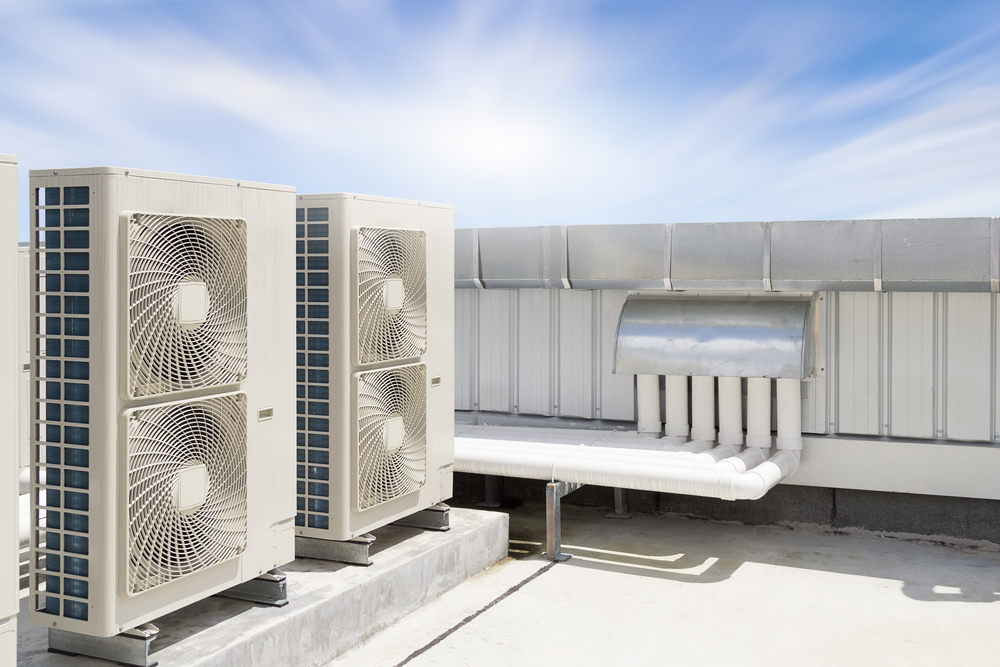What are the defining elements of efficient HVAC systems? The good news is that there are a lot of things you can do to ensure the long-term efficiency of your residential or commercial HVAC system. The less good news is that a lot of different factors go into the equation, which can make for a bit of a balancing act.  Keeping these elements in mind—and having a trusted HVAC contractor who can help you care for your system—will enable you to get the most out of your heating and cooling budget.
Keeping these elements in mind—and having a trusted HVAC contractor who can help you care for your system—will enable you to get the most out of your heating and cooling budget.
- Ensure proper HVAC sizing: System sizing is the foundation for everything else when it comes to your system. An undersized HVAC unit won’t be able to heat or cool your space sufficiently—but will overwork itself trying to do so. An oversized HVAC unit will work in fits and starts, producing too much hot or cold air and then switching off as that air diffuses throughout the space. In either case, you’ll be left with inconsistent temperature levels throughout your home or business, higher utility bills, and an overstrained HVAC system. Work with an HVAC technician to make sure you are sizing your unit correctly to suit your building. The most efficient HVAC systems are the ones that are perfectly sized to suit the space.
- Pay attention to ratings: System sizing/capacity is one of the two factors you should pay close attention to when purchasing a new HVAC unit. The other is the efficiency rating. There are four types of efficiency ratings you should look for on HVAC systems. EER (Energy Efficiency Ration) and SEER (Seasonal Energy Efficiency Ratio) measure the efficiency of an air conditioner. Annual Fuel Utilization Efficiency (AFUE) is the energy efficiency measure for furnaces, while the Heating Seasonal Performance Factor (HSPF) is a measure for heat pumps.
- Regularly service for your heating and cooling units: Ideally, you should be having your HVAC technician visit twice a year for maintenance calls. Schedule the first service call in the late winter or early spring, to make sure your air conditioner is tuned up and ready to go for summer. Schedule the second call in the late summer or early fall, to confirm that the furnace is prepped for winter. Regular maintenance will help you minimize the chances of a breakdown or a serious performance problem that affects efficiency.
- Regular air duct cleaning: You don’t need to clean your air ducts as often as your service your HVAC units. However, semi-regular duct cleaning can improve airflow throughout your home, reducing the amount of work your system needs to do to get heated or cooled air to its final destination. Furthermore, cleaning out your ducts regularly helps preserve the indoor air quality in your building, which is important to health, wellbeing, and overall quality of life.
- Smart thermostat adjustments: As technology evolves, HVAC systems are becoming more efficient. That added efficiency isn’t just due to the heating and cooling units themselves, but also innovations such as the smart thermostat. Smart home technology has enabled most homeowners and businesses to have more control over their HVAC systems. It’s easy today to program your thermostat to adjust temperatures on its own, based on when people are around and when lower or higher temperatures might be necessary or acceptable. Smart thermostats also allow for remote adjustments from afar—which means no more accidentally forgetting to turn down the heat when you go away for six weeks in the winter.
- Windows and insulation: The design and thermal performance of a building as a whole can have a drastic effect on the efficiency of an HVAC system. Specifically, a home that is drafty and poorly insulated is going to have a lot of problems with heat transfer, which means the HVAC system will have to work that much harder to heat or cool it effectively. More energy-efficient windows, better insulation (particularly around HVAC ductwork), and stronger caulking around doorframes or window frames can all do a lot to prevent heat loss.
- Consider replacing older units with more efficient HVAC systems: There’s no shame in admitting your furnace or air conditioner has lost a step. These systems aren’t built to last forever, and eventually, older systems will start costing more to run than they are worth. In general, HVAC systems have lifespans of anywhere between 15 and 25 years. Of course, that’s still a pretty big gap, which means you should work closely with your HVAC technician to determine when it’s time to replace your furnace or air conditioning unit. Regular maintenance calls will make it easier for your technician to monitor the condition of your unit and weigh the options of investing in a newer, more efficient model versus continuing to use the older one.
So, what can you do at home (or at work) to make sure your HVAC system is running as efficiently as possible? Changing out furnace filters regularly, making sure you’re not leaving doors or windows open while the system is running, and monitoring your monthly utility bills are all essential steps to take. Inexplicable increases in utility costs—particularly on a year-over-year basis—are a solid indication that your system isn’t working as efficiently as it once did. Finally, schedule those maintenance calls with your HVAC technician. Getting those dates on the calendar is the most important thing you can do to ensure efficient HVAC systems.
